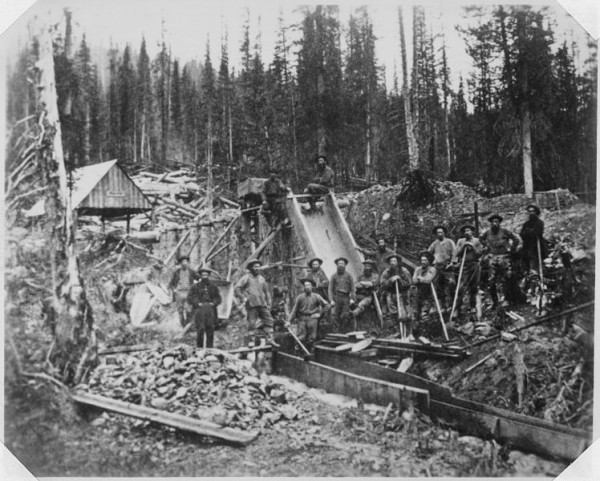For any designer and/or developer that stumbles into the WordPress community for the first time, they are bound to feel a bit overwhelmed.
After all, we’ve got a near endless supply of themes, plugins, developers, designers, blogs, and other artifacts- all of which are surrounding our favorite blogging platform, CMS, and slowly-developing application platform.
It seems almost like a gold mine, right?

We’ve got entire sites dedicated to asking questions, we’ve got meetups – both official and unofficial – that meet around the world each week (or, at least each month), and we’ve got people all over the Internet, both on blogs and on Twitter, talking about the application, the strong points, the weak points, and even negatively critiquing one another about their pet projects or even their core business’ projects.
Personally, I don’t think it’s necessarily fair to generalize and call it the WordPress Community because the “community” is actually a collection of smaller subcultures or microcosms (for lack of better terms) that are made up of business people, designers, developers, bloggers, consultants, and so on.
But for all intents and purposes, we’ll refer to all of the above as the WordPress community in this particular post (as much as I’m not really a fan of the term).

The problem is that if you spend time in this community long enough, you begin to notice that it’s got a side that’s not so attractive. Open debates and dialog (and I use that term very loosely) quickly become passive aggressive comments.
People take sides on certain issues – which is a prerogative we all have, but when it comes to the greater good of the WordPress application, there has to be middle ground that’s found rather than simply making statements about “how things would be if I were working on it.”
It gets complicated really fast, doesn’t it?
WordPress is Bigger Than Ourselves
I honestly do believe that we all have the highest aspirations for WordPress both as a piece of software and as a global community.
The challenge in trying to find compromise in those aspirations is that our egos and our overall opinions on how something should be done gets in the way.
And that’s human nature.
But I don’t think that’s an excuse, and here’s why:
- If we’re all aware of our human nature (our egos, our opinions, and what not),
- And if we’re all aware that we’re striving to improve the core application and its community,
- Then why would we not do a better job of keeping our opinions and thoughts in check?
Now, don’t read me wrong: I’m grouping all of us in this. WP Daily is not above board in this. We could all do a better job.

The thing that concerns me the most is that newcomers end up discovering the dark side of the WordPress community where they’ll quickly see that we attack our own.
That really sucks.
Especially so because open source, by nature, is supposed to be about collaboration. How else is anything supposed to get done?
So to that end, I challenge all of us to do a better job of being more respectful to one another, to handle political issues and differing opinions with far more respect that we’ve traditionally seen.
Simply put, it gets nasty out there and do we really have time for that?
Time is On Our Side
Honestly, we do have time for that; otherwise, we shouldn’t actually spend the time doing it, right?

And this isn’t something that’s new to us, nor is it something that’s relegated to the WordPress community. In fact, I’d say that it’s almost a right-of-passage: When you discover what goes on in the underbelly of the WordPress community, then you’ve arrived – at least to some degree.
Look at local meetups or WordCamps for example: attendees come with an insatiable desire to learn about all things WordPress.
Perhaps it’s designing, developing, blogging, how to even use WordPress, or generally how to level up their skills.
All the while, there’s this entire group of people that are blasting others for what they are sharing, what they are not sharing, or even how they should be sharing.

But if you stop for a minute and think that maybe these people are truly doing the best work that they can possibly do, don’t they deserve a bit more respect and constructive criticism rather than simply directly criticizing their methodologies- either on blogs, Twitter, or whatever other medium you opt to share?
The point that I’m trying to make is this: Whether you like it or not, we are all in this together. Yes, we’re all going to have our opinions to share, and yes, we’re often going to disagree.
But that disagreement doesn’t have to be inflammatory, passive aggressive, or flat-out insulting in nature.
In fact, I’d argue that it doesn’t even have to be public at first. After all, whatever happened to chatting via email? I mean, honestly, is 140 characters really worth stirring up something that you know can’t be resolved via that particular channel?
So Where Do We Go From Here?
In the end, people are probably going to go wherever they want to go. Those who hope to make the WordPress Community a better place will likely aim to continue on that track, and those who like to bicker and prod others are going to continue to do so.
And that kind of sucks simply because we should helping one another far more than simply critiquing one another about the work that we’re doing.
The next time you opt to shoot that snarky tweet, or aim to share that direct message, or start to write that inflammatory post comment, try to determine if it’s actually going to provide anything productive or conducive to progress.
If not, then forget about it.
The WordPress Community doesn’t need that attitude. In fact, it could stand for less.

42 Comments
Join the conversation